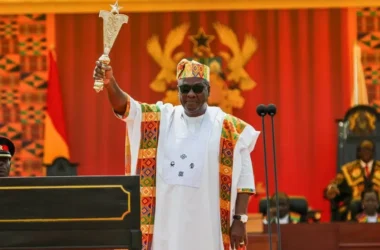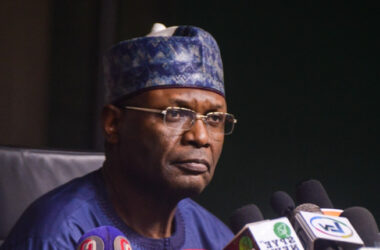The financial challenges of Nigerian states have deepened in the first half of 2024, with 20 state governments collectively borrowing a staggering N446.29 billion. This comes despite a 40% increase in revenue allocation from the Federation Account, highlighting the increasing burden of debt repayments that state administrations are grappling with.
A report by The PUNCH revealed that 29 states spent 80.7% of their Internally Generated Revenue (IGR) on debt servicing in the first six months of 2024. This has significantly impacted their ability to fund essential services such as infrastructure, healthcare, and education, forcing them to rely heavily on borrowing to cover their financial gaps.
The situation has been exacerbated by the removal of the petrol subsidy and recent currency reforms, which, while boosting revenue allocations, have not reduced the states’ reliance on loans. Instead, the funds have primarily been diverted to meet existing debt obligations. As a result, many states remain trapped in a cycle of borrowing to repay earlier loans, leaving little room for economic growth.
For instance, states like Osun, Ondo, Kaduna, and Cross River have seen the bulk of their Federal Accounts Allocation Committee (FAAC) funds used to service their debts. Osun’s debt servicing requirements exceeded its revenue by N10.94 billion, while Ondo faced a deficit of N27.72 billion, according to official data. The growing pressure of these debt obligations has made it increasingly difficult for states to maintain financial stability.
The Governor of Kaduna State, Uba Sani, previously lamented the situation, highlighting the N85 billion and $587 million debt burden he inherited from previous administrations. He noted that the debt has crippled the state’s ability to meet essential financial obligations, including salary payments. “We remain resolute in steering Kaduna State towards progress and sustainable development despite the huge debt burden,” the governor stated during a Town Hall Meeting.
A state-by-state analysis paints a bleak picture across the country. States like Akwa Ibom, Cross River, and Delta spent between 60% and 80% of their IGR on debt servicing. In other states, such as Adamawa, Bauchi, Gombe, and Kano, debt servicing exceeded their revenues, further deepening their financial woes. Meanwhile, Lagos State stands out, recording an impressive N603.71 billion IGR while managing to pay N201.49 billion in debt servicing.
Experts have raised concerns about the growing debt burdens faced by states, citing foreign exchange volatility as a major factor driving up debt servicing costs, especially for foreign loans. Dr. Muda Yusuf, the Director of the Centre for Promotion of Private Enterprise, explained that the depreciation of the naira has worsened the debt burden for many states. He emphasized that while borrowing can be beneficial for developmental purposes, it becomes unsustainable when it threatens a state’s ability to meet its financial obligations.
Despite the growing debt burden, states continue to borrow heavily. Cross River topped the list with a loan of N121.22 billion in the first six months of 2024, followed by Oyo with N55.36 billion and Kogi with N41.22 billion. However, not all states have taken on significant new debts. Plateau, Edo, and Osun recorded the lowest borrowing figures, with Osun borrowing just N250 million.










